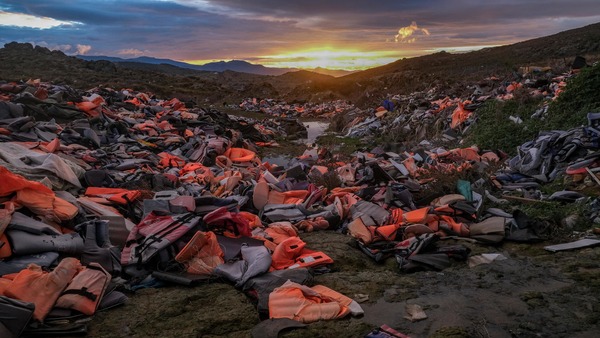European Member States urged to increase relocation and family reunifications

DUBLIN / GENEVA 29 August 2019 – The number of unaccompanied and separated refugee and migrant children staying in dangerous and overcrowded Reception and Identification Centres on the Greek islands, and detention facilities across the country, now exceeds 1,100 – the largest number since the beginning of 2016. UNICEF today urged European Member States to do more to protect these particularly vulnerable children.
“This past weekend a child lost his life and two more were injured in a violent incident in the Reception and Identification Centre in Moria. This latest tragedy is a stark reminder that the situation in Reception Centres in Greece is at a breaking-point,” said UNICEF Regional Director for Europe and Central Asia and Special Coordinator for the Refugee and Migrant Response in Europe, Ms. Afshan Khan. “We continue to appeal to Greek authorities to transfer children to adequate accommodation on the mainland, but Greece cannot support refugee and migrant children alone. It is vital that European Governments increase pledges to relocate unaccompanied and separated refugee and migrant children and fast-track family reunifications for those who already have relatives in Europe.”
‘They lost their minds’
To highlight the situation, UNICEF has released a short film documenting the dreams and despair of boys staying in ‘Section B’, an area meant to provide specialised protection for unaccompanied children in the Reception and Identification Centre in Moria, on the Greek island of Lesvos. The film depicts children as they recount the horrors that made them flee, the dangerous journeys they took, the difficult conditions at the centre, and their fears and hopes for their uncertain futures.
“I couldn’t study because there was no security, the situation forced me to leave the country,” says 16-year-old Morteza* from Afghanistan, one of four boys featured in the new film. “I think day by day they lost their minds,” he says about other boys in ‘Section B’. “Because of that, sometimes they cut their hands. I don’t want to be like that.”
Overcrowded facility
The film shows the exhausted and overwhelmed staff dedicated to the care and protection of the children. Services are overstretched and children remain at risk of violence and abuse with limited access to school, health care and psychosocial support. Children often remain in ‘Section B’ longer than the 25-days stipulated by Greek law because suitable accommodation on the mainland is full.
The Reception Centre in Moria is meant to accommodate 3,000 people, but currently has more than 8,700, including 3,000 children. ‘Section B’, has room for 160 unaccompanied children, but has 520.
Recommended actions
European Governments and EU Institutions should take the following actions to protect the rights of refugee and migrant children:
• Increase pledges to relocate unaccompanied and separated children – particularly those in Greece, Italy and Spain.
• Fast-track family reunifications for children who already have relatives living in Europe.
• Urgently increase funds to support and strengthen response efforts of European countries receiving the largest number of refugees and migrants.
Eliminate detention
Once children enter Europe, EU Governments should work together to ensure all refugee and migrant children – accompanied or not – have access to safe and adequate shelter, eliminating detention as an option.
Children need immediate access to essential services and at all stages of their journey, while ensuring safe passage and legal pathways. Specialised accommodation, foster care, guardianship and other measures are needed to ensure every unaccompanied or separated child realises his/her right to grow up in a caring environment.
UNICEF supports
Currently, there are more than 32,000 refugee and migrant children in Greece, including more than 4,000 who are unaccompanied and separated. Over the last three years, UNICEF has supported more than 60,000 refugee and migrant children and their families in Greece. This work includes ensuring children have access to vital child protection services, including psychosocial support, health care and education.
UNICEF is also working with the Ministry of Health, providing 85,000 vaccines to protect refugee and migrant children from diseases.
*Name changed to guarantee protection.
ENDS
###
Access multimedia content here
About UNICEF
UNICEF works in the world’s toughest places, to reach the world’s most disadvantaged children. Across more than 190 countries and territories, we work for every child, everywhere, to build a better world for everyone. For more information about UNICEF global and its work, visit the website.
Follow us on Twitter and Facebook
For more information please contact:
Aedín Donnelly, Communications and Media Manager for UNICEF Ireland | aedin@unicef.ie | Tel: +353 1 809 0291 | Mob: +353 85 1395272




